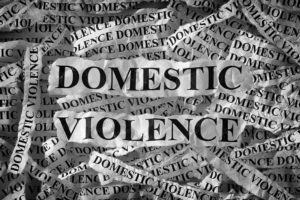
We all have a general understanding of what domestic violence is — when a person beats up on his/her significant other. But what is the exact legal definition of domestic violence?
According to New Jersey’s Prevention of Domestic Act of 1991, domestic abuse is defined as one of the following criminal offenses is inflicted on another:
- Homicide
- Assault
- Terroristic threats
- Kidnapping, criminal restraint, or false imprisonment
- Sexual assault
- Criminal sexual contact
- Lewdness
- Criminal mischief
- Burglary
- Criminal trespassing
- Harassment or stalking
This does not mean if someone who robbed your home can be convicted of domestic violence. You need to have an intimate relationship with the person (past or present) who committed these offenses and meets the following conditions: Is at least 18 years old or an emancipated minor; has a child or is expecting a child with the person; or is in a dating relationship, regardless of the age. An important sidenote — if you are an unemancipated minor who is accused of domestic violence, you could still be prosecuted on the charges; however, you may be prosecuted under juvenile delinquence laws.
The law also defines what legal remedies are available to those who victims of domestic violence. You can do one of the following:
- The victim can apply for a protection from abuse order (also known as a restraining order) against his/her abuser
- The victim can file a civil lawsuit against the abuser to recover from losses and expenses such as medical bills or pain and suffering
- The victim can file for child custody and spousal support orders
Not sure if your case falls under New Jersey’s definition of domestic violence? This is why it’s best to speak with an experienced attorney about your claim. Contact domestic violence attorney Anthony Carbone for a free consultation today and learn what your options are for your case.